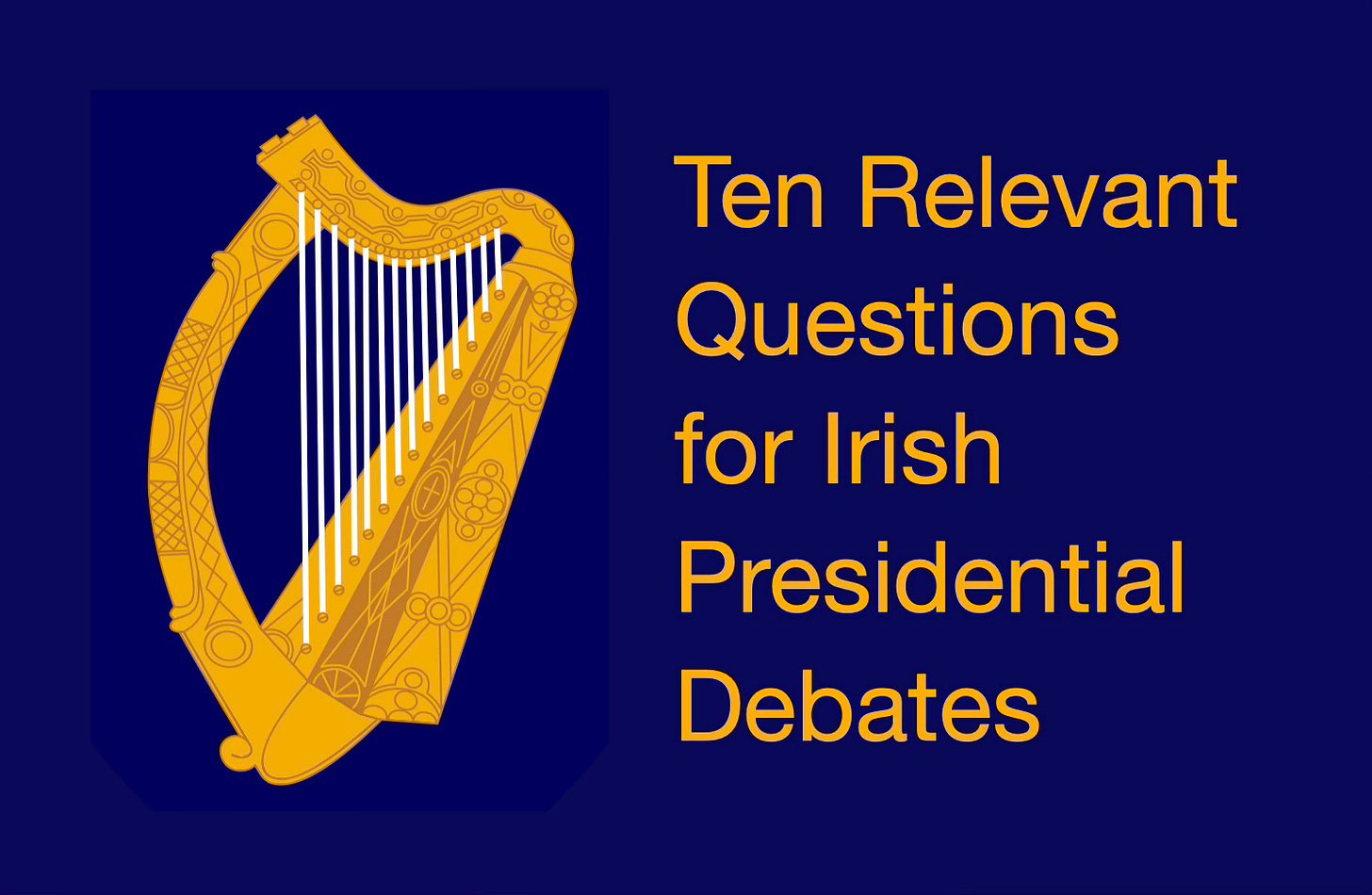The Irish Presidential candidates debated on telly this week. Too many questions were about their political views. This is outside the constitutional role of the President. Here are ten relevant questions that future debate hosts could ask them.
Taking Office
1. Article 12.8 says the President must make a declaration ‘In the presence of Almighty God’ and say ‘May God direct and sustain me.’ Having made this religious declaration, what steps would you take to foster a Presidency inclusive of all citizens including the nonreligious?
General Powers and Limits
2. Article 13.9 says the President can exercise powers only on the advice of the government, unless a specific Article gives personal discretion, and there is a long-standing convention that the Presidency is above party politics. Some recent Presidents have tested the boundaries of this. Would you do this, and if so how would you ensure that you respect and remain within constitutional limits?
3. Article 13.2.3 says the President may convene a meeting of the Oireachtas, and Article 13.7 says the President may address the Oireachtas and/or the nation with a message approved by the government on any matter of national and public importance. What topics would justify you convening such a meeting and/or seeking government approval to make such an address? And what principles would you use to keep your messages above party politics?
Specific Powers and Limits
4. What specific criteria would you use before exercising the following powers, and would you publicly explain the reasons for your decisions?
Appointing members of the Council of State (Article 31.3)
Refusing to dissolve Dáil Éireann on the advice of a Taoiseach who has ceased to retain a Dáil majority (13.2.2)
Referring a Bill to the Supreme Court to test its constitutionality (26.1.1)
Referring a Bill to the people by referendum, if asked to do so by a majority of Senators and a third of TDs who say it is of sufficient national importance (27.4.1)
Exercising the supreme command of the Defence Forces (13.4) as regulated by law (13.5.1)
Exercising the right of pardon and the power to commute or remit punishment imposed by a criminal court (13.6)
What Would You have Done?
5. In 1976, President Cearbhall Ó Dálaigh resigned ‘to protect the dignity and independence of the presidency as an institution’, after the Defence Minister insulted him for referring a Bill to the Supreme Court. What would you have done, and under what circumstances would you consider resigning as President?
6. In 1982, President Patrick Hillery refused to engage with opposition TDs phoning to urge him to not dissolve the Dáil after the budget fell. Instead he granted the dissolution. What would you have done, and who if anyone would you engage with?
7. In 1997, President Mary Robinson left office eleven weeks early to take up the position of United Nations High Commissioner for Human Rights. What would you have done, and are there any circumstances in which you would leave office before your term has finished?
8. In 2005, President Mary McAleese apologised after comparing irrational hatred of Catholics in Northern Ireland to irrational hatred of Jews in Nazi Germany. How would you stress-test your public statements to avoid unintended controversy, and how would you react if it happened?
9. In 2021, President Michael D Higgins declined to attend a church service in Armagh with the British Queen to mark the creation of Northern Ireland because the event had become politicised. What would you have done, and what criteria would you use to determine whether an event had become so politicised to warrant you not attending?
10. In 2023, President Michael D Higgins apologised after implying the British chair of a forum on international security was biased, but did not apologise for warning of an Irish government drift away from the policy of military neutrality. What would you have done, and what topics are appropriate for the President to comment on, and in what way, without straying into policy?


